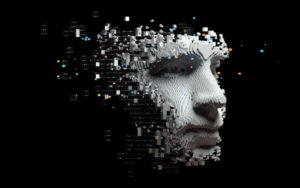Originally posted November 7, 2022.
Why are governments so eager to digitize your currency and your identification? Why would they want to match them with tracking software and your COVID-19 vaccination status? Why are they so eager to abandon thousands of years of tradition using physical cash/currency? Why would they want to reduce your identity to a meaningless digital avatar representing your life? At Lifesite News, Andreas Wailzer examines the motives and ramifications of digitized identity and currency, writing:
By now, you probably know about the plans for digital IDs and digital currencies. But how far along are these plans exactly in various places around the world? What steps are being undertaken right now? Why are digital “identities” so problematic? And what are possible solutions? We will explore these questions in this article.
Digital “identities” are problematic
The process of rolling out digital IDs worldwide began years before the COVID fiasco and the publication of Klaus Schwab’s book “COVID-19: The Great Reset.”
The United Nations’ project ID2020 launched in 2016; its goal is to provide every person in the world with a digital identity. But the European Union created the legal framework for the introduction of a European digital ID even earlier than that, in 2014.
This March my colleague Ashley Sadler wrote a great article about how world elites are quietly preparing digital IDs to put a global surveillance state in place.
When we look at Europe, we can see that digital IDs are already used by most of the population in many countries, like Italy, Austria, Denmark, France, the Netherlands, Norway, and Sweden.
And even Ukraine has an all-encompassing government app called Diia, an acronym for “the State and me,” which already combines digital identification with passports, licenses, social welfare benefits, COVID “vaccination” records, etc.
During its ongoing war with Russia, the government even added a feature with which citizens could inform the state about the location and equipment of Russian troops. Bizarrely, the app also contains a game where users can destroy Russian tanks with drones they control.
I would argue that the very term “Digital Identity” is problematic, as it suggests to people that their identity, their entire being, could be stored on a cloud server.
If you’re willing to fight for Main Street America, click here to sign up for my free weekly email.






